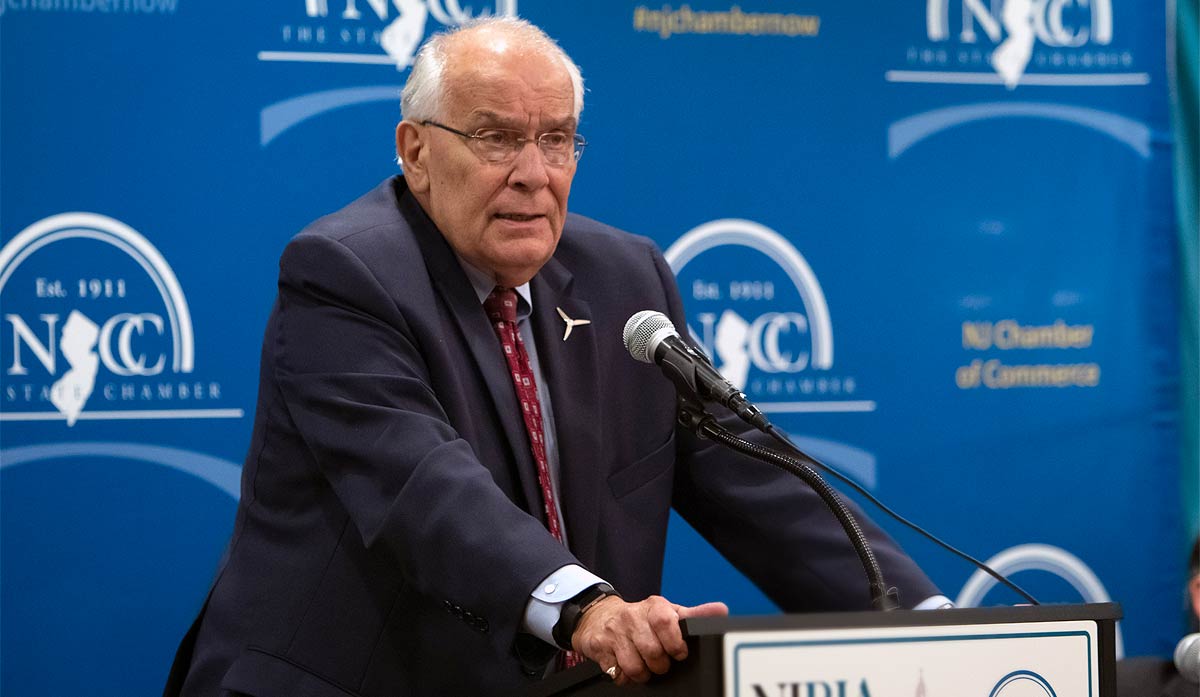Last year there was great pride when New Jersey climbed 23 places, earning the distinction as the most improved state for doing business on CNBC’s Top States for Business list. That’s why it is disappointing that New Jersey is moving in the wrong direction, falling from No. 19 to No. 25 in 2024. We placed second to last in business friendliness, we have one of the highest costs of doing business – and we fell in the infrastructure, cost of living, and technology and innovation categories. We realize that there are initiatives in place to improve infrastructure and technology but we need to continue to provide enhanced focus on those two areas. Also of great concern is neighboring New York and Pennsylvania are ahead of us; states that are actively luring companies and jobs away from us. This year’s ranking does not take into account the negative impact of the recent budget, including the Corporate Transit Fee, which gives New Jersey the highest CBT rate for large companies and will certainly impact our future business attraction and retention efforts. All of this reinforces our longstanding plea for the Administration and the legislature to provide more support and attention for the business community.
Tom Bracken, President & CEO, New Jersey Chamber of Commerce
The budget battle is over. We now have to live with the consequences. We are hoping that all the constructive dialogue we have had with the Administration and the legislature over the past months will open the door for more productive discussions in regards to our economy and support for the business community.
Tom Bracken, President & CEO, New Jersey Chamber of Commerce
New Jersey Chamber of Commerce President and CEO Tom Bracken issued a stark warning last night to a panel of state legislators who were on the verge of voting on a $56.6 billion state budget. Bracken said the proposed budget, as it stands, is a stopgap measure that will harm New Jersey’s economy and damage its business reputation. The spending plan includes what Bracken labeled an “outrageous and punitive” 2.5% tax on the state’s largest employers – dubbed a Corporate Transit Fee.
“I have been very clear about our opposition to this budget – and the Corporate Transit Fee – and the extreme harm each will be doing to the state,” Bracken said.
The nightmare might be coming true.
Back in March when we first heard about the proposed budget, the Corporate Transit Fee (CTF) and the buck-a-truck tax, I called it a “nightmare” budget proposal that’s “a major step backwards” for the state.
Well, with less than one week before the fiscal 2025 state budget has to be signed by Governor Murphy, some disappointing news is emerging. Word on West State Street is Governor Murphy and our legislative leaders have agreed on a 2.5% CTF retroactive to Jan. 1, 2024 and lasting for five years, which means the original proposal by the governor is in full force for five years.
 Diane Wasser, EisnerAmper’s Partner-in-Charge of New Jersey and Managing Partner of Regions at EisnerAmper, was elected treasurer of the New Jersey Chamber of Commerce Board of Directors at its June 5 annual meeting. Wasser, a Chamber Board Audit Committee member, has been a board member for four years.
Diane Wasser, EisnerAmper’s Partner-in-Charge of New Jersey and Managing Partner of Regions at EisnerAmper, was elected treasurer of the New Jersey Chamber of Commerce Board of Directors at its June 5 annual meeting. Wasser, a Chamber Board Audit Committee member, has been a board member for four years.
“It is an honor to be elected board treasurer,” said Wasser. “I look forward to working with Chamber staff and the other board officers in advancing the organization’s work of ensuring that New Jersey remains a desirable state to operate a business providing good-paying jobs to employees.”
There has been a lot of discussion about the proposed 2.5% Corporate Transit Fee on New Jersey’s largest employers and we at the New Jersey Chamber of Commerce, along with many of our trade association colleagues, are totally against it and would like to see it eliminated. Everyone agrees New Jersey Transit needs to get its fiscal house in order; however, the employer community stands firm that the CTF will never be a viable solution. Thanks to NJ Transit’s increased funding sources, policymakers can instead spend the next year doing a deep dive into the agency’s true financial position and needs — and not rush through a proposal during budget season with many negative economic consequences.
By Tom Bracken
There has been a lot of discussion about the proposed 2.5% Corporate Transit Fee (CTF) on New Jersey’s largest employers and we, along with many of our trade association colleagues, are totally against it and would like to see it eliminated. Everyone agrees NJ Transit needs to get its fiscal house in order, however, the employer community stands firm the CTF will never be a viable solution. Thanks to NJ Transit’s increased funding sources, policymakers can instead spend the next year doing a deep dive into the agency’s true financial position and needs – and not rush through a proposal during budget season with many negative economic consequences.
The U.S. News & World Report last week released its rankings of the best states – and for New Jersey, there was good news and bad news.
The magazine named New Jersey the 14th best state overall – positive news. But when the study examined fiscal stability, a metric important to the state’s business environment – it ranks New Jersey a dismal 48th. This follows a CNBC study last year that placed New Jersey a much-improved 19th overall on its list of “Top States for Business.” But it too acknowledged critical shortcomings – ranking New Jersey 44th in cost-effectiveness and 48th in business-friendliness.
NJ Chamber is Joined by 40 Local and Regional Chambers of Commerce to Oppose Business Tax Hikes. Read The Letter We Sent to Legislators
The N.J. Chamber of Commerce is being joined by over 40 local and regional chambers of commerce statewide to oppose the proposed "Corporate Transit Fee" on New Jersey's large companies, and the proposed "buck-a-truck" tax on trucks that deliver goods to and from warehouses in the state. Both measures are contained in the proposed state budget that was put forward by Gov. Murphy and is currently being considered by the state Legislature.

The New Jersey Chamber of Commerce extends our deepest condolences on the passing of Rep. Donald Payne, Jr., a dedicated member of the New Jersey Congressional delegation who championed the cause of Essex County small businesses and tirelessly advocated for housing issues in the communities he represented. His presence at the Chamber's Walk to Washington and Congressional Reception in D.C. will be sorely missed, but his legacy of service and commitment will continue to inspire us all.
—Tom Bracken, President & CEO, New Jersey Chamber of Commerce